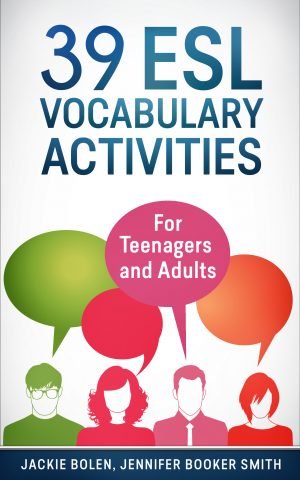Think about your experiences with learning words in a new language. How did you do it? Many people just white knuckle it and straight up memorize them with flashcards or something similar through various rote memorization techniques. But, is it the best way?

Rote Memorization of Vocabulary
Keep on reading to find out more details about rote memory and rote learning for vocabulary memorization. We’ll also answer the question about whether or not students should use this technique for vocabulary acquisition.
Rote Learning Definition
According to Wikipedia, rote learning or rote memory is:
“Rote learning is a memorization technique based on repetition. The idea is that one will be able to quickly recall the meaning of the material the more one repeats it. Some of the alternatives to rote learning include meaningful learning, associative learning, and active learning.”
Rote Memorization: Kind of Out of Favour These Days
It seems that straight-up memorization of a language is a bit out of vogue these days, with things like the audio-lingual method going out of fashion. These days, things like communicative language teaching and extensive reading are all the rage. In these newer methods, there is almost no emphasis on rote learning. Instead, it’s all about negotiating means between communicators or simply learning new words through repeated exposure.
However, I would argue that there is still a place in language learning for rote memory and that it is necessary, especially for something like vocabulary.
Paul Nation: Rote Memory and Vocabulary Acquisition
I went to a couple of sessions at a Kotesol conference a few years back with Paul Nation, who is generally considered to be the expert on vocabulary acquisition. The one thing that resonated with me deeply and has stuck with me since then was his emphasis on rote memorization of vocabulary as an essential part of learning another language.
He mentioned that rote memorization is a great strategy to use because it’s quick, easy, and effective. My own experience shows this as well. I’ve just “picked up” very few words naturally along the way. The ones I still remember after all these years are the ones I made flashcards for and memorized.
Along with rote memorization, he’s also an advocate of extensive reading as a way to learn new vocabulary.
My Own Experience with Rote Memorization
From my own experience in studying Korean and Greek, I understood intuitively what he meant when he said that. I’ve picked up some Korean words simply by being exposed to it so often that it’d be impossible not to remember it. Hello, here, thank you, it’s okay. I knew the Korean word by sound even before I knew the meaning of them.
Think about something like parts of the body, though. You’re not going to be exposed to enough of these words to remember them without some dedicated study time. There are numerous other examples of important but not that frequent words in any language that must simply be memorized.
Most of my vocabulary acquisition in Korea came through flashcards—what I know of Greek was done exclusively this way. The videos I watch or the books I study seem like grains of sand slipping through my fingers in a lot of ways, and I will remember words I pick up through them briefly, but they’re not really in my brain permanently, and they’re hard to access it quickly. It seems that those words I’ve studied with flashcards are the ones that I can recall instantly when needed.

Roe Learning and Memorizing Vocabulary
Rote Learning in South Korea
I got my start teaching in South Korea by working at hagwons which are basically cram schools for kids, before moving up to teaching at universities. At the hagwons, the Korean teachers were generally responsible for helping students acquire new vocabulary.
To this end, students had weekly vocab lists that they had to take home and memorize, and then there would be a small test on these words each week. The words generally came from the ESL textbooks we were using in class, so the students would be exposed to these new words there as well. However, the bulk of the work fell onto the students who had to use rote memorization to a large degree.
The results? Quite good. Most students did indeed learn a bunch of new words on a weekly basis. They were certainly motivated to some degree by the test! And because the words came from the textbooks, which did a decent job of recycling vocabulary (bringing them back into readings or listening in later chapters), it seemed that students retained them reasonably well.

Rote Memory and Memorization of Vocabulary
What about English Learners and Rote Memory?
How can we help our students learn new vocabulary words Is it enough to expose them repeatedly to the same words and hope they pick them up? Is it useful for students to explore and discover the words they want to learn through communicative language activities? Maybe we start an extensive reading or listening program and expose them to new words this way.
Or, is there a place for rote memorization? That’s a great question and certainly one that all language teachers have to consider for themselves. This is because there isn’t one single theory for how people learn languages. There are a lot of questions and theories related to language acquisition, but not many definitely answer, unfortunately.
Need some ESL Vocabulary Activities?
If you’re looking for some ESL vocabulary games and activities that’ll help your students learn, use, and retain new English words, then you’ll need to check out this book over on Amazon:
39 ESL Vocabulary Activities: For Teenagers and Adults.
The way I use these vocabulary activities are as follows. I assign words for students to memorize for homework, and then have little quizzes in class on it.
Then, to reinforce these words and work more on context with them, I use a variety of activities. This helps them to “stick” because it’s easy to forget a word you’ve memorized for a test if you don’t use it.
The book is available in both digital and print formats. Keep a copy on the bookshelf in your office as a handy reference guide. Or, take a copy with you on your phone or tablet for lesson planning on the go.
It really is that easy. Learn more about the book on Amazon:
—>39 ESL Vocabulary Activities for Teens and Adults<—
FAQs About Rote Learning and Memorization of Vocabulary
Check out some of the most frequently asked questions and answers about rote memory and vocabulary acquisition.
What is meant by rote memory?
Rote memory is a type of memory based on repetition. According to the theory of rote learning, the more you repeat, the quicker you will recall the meaning of a vocabulary. The major practice in rote memorization of vocabulary is mainly learning a new word by repeating the process in routine.
What is an example of rote memorization?
Rote memorization is as simple as repeating a word or number to keep it in one’s brain. The more you repeat writing or saying the word and definition, the quicker you will remember the meaning of a word.
For example, Korean hagwons (cram schools) give a long list of vocabulary for students to memorize for a week and take a vocabulary quiz the following week. The students will repeat writing and saying out loud the words throughout the week until they can automatically recall the definition when they see the word. The list of vocabulary is mainly from ESL textbooks. So, students will continue to be exposed to these newly memorized words. The repeated lesson helps students to recycle and keep the vocabulary in their brains.
What’s another word for rote learning?
Rote learning can also be expressed as repetition, routine, memorization, automatic, and memorizing and repeating.
Rote Memorization of Vocabulary: Join the Conversation
Do you have any tips or tricks for helping students with vocabulary, and are you a fan of rote learning? Leave a comment below and let us know what you think. We’d love to hear from you.
Also, be sure to give this article a share on Twitter, Facebook, or Pinterest. It’ll help other busy English teachers like yourself find this useful resource.





